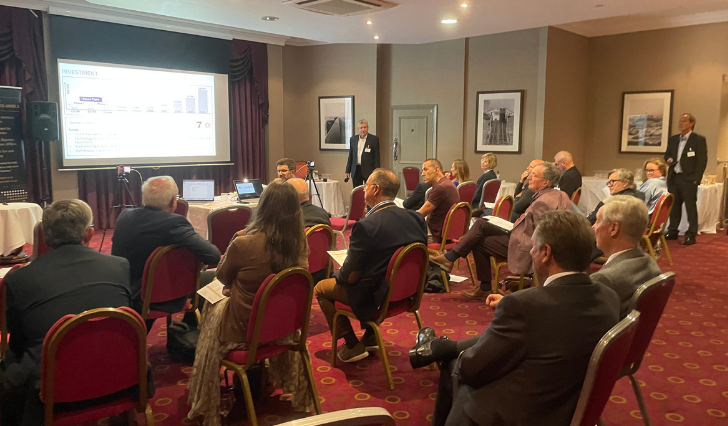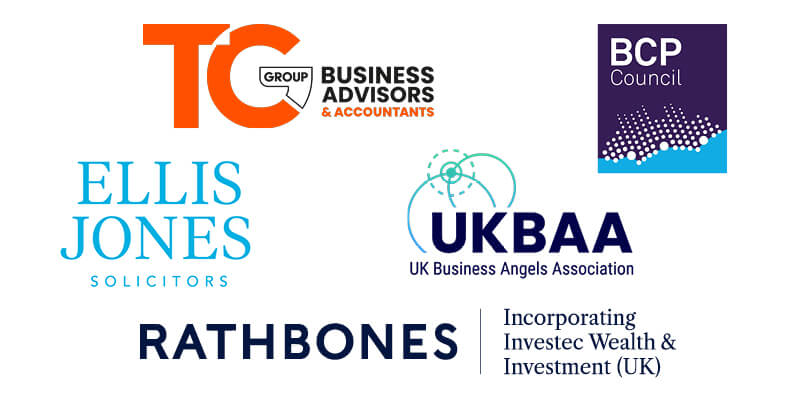Have you ever wondered what being an Angel Investor actually means? How does it work? What happens when it goes well and not so well?
Here are two case studies which we hope will give readers the opportunity to understand more about what is it like to be an Angel Investor. These are personal accounts from our DBA directors about their involvement in two completely different investment opportunities.
Dorset Business Angels successfully backed Wizzle in its bid to disrupt the cash-for-car market

The Pitch (May 2016)
Wizzle is a web service and smartphone application enabling consumers to easily create accurate and transparent vehicle appraisals with a view to selling their cars direct to interested dealers, at the best price possible.
Bournemouth based Wizzle approached DBA for funding in May 2016, in a successful pitch that allowed the dynamic Wizzle team to launch their platform nationally. It was launched in August 2016 to a network of more than 3,500 dealer staff – representing 1,000 motor retailers – monitoring cars uploaded for sale daily by consumers.
The vehicle upload and listing service is free to consumers, with no subscription cost for dealers, who instead pay a transaction fee on a completed purchase, notably less than a typical auction house commission.
Dealer margins are protected by sidestepping any middleman while they are also protected from time-wasting mis-descriptions by a fully transparent appraisal, including clear photographs. For consumers, trust in the Wizzle system delivering a ‘fair’ price is encouraged by the likelihood of multiple dealers bidding in competition for the most desirable cars.
Wizzle founder Sébastien Duval commented, “The cash-for-car market has grown massively but often comes in for criticism in the consumer press for allegedly underpaying on the true value of consumers’ cars. We all know that dealers also need protection from unscrupulous sellers and misleading vehicle descriptions.
At the same time, the number of premium quality vehicles hoovered up by the big cash-for-car names has added to the stocking pressures on dealers missing out on part-exchanges and needing other sources to keep their forecourts fresh. By bringing consumers and dealers together on the level playing field of a transparent appraisal, description and auction process, Wizzle aims to create a genuine win-win for both sides.”
The Process
Following the pitch, Don McQueen, Dorset Business Angels Chairman, took the follow-up interest lead. Don then organised three other investors, one of which was a previous DBA active members (David Ford). He then introduced two further associates.
In total the four of them invested £300k in the first round in July 2016. The documents for the transaction were prepared by DBA board members and partners. Due diligence was carried out by the Investors. A further round of investment of £150k was made in Oct 2017, and a third round of £100k in June 2018 to fund a trial radio campaign, which helped build brand awareness. In all the total investment from the DBA team was £550k.
The investors now own 46% of the business, with Wizzle management retaining the remainder.
Don commented “This young, local company provided a refreshing and easy new way for the general public to promote and sell their vehicles. It cut out some of the intermediaries usually involved in the online selling, which in turn resulted in a much higher price being offered to the Wizzle client."
The Outcome in Autumn 2018
The business had just reached a profit level. The company was well behind its original revenue plan, but it had learnt a lot about what works and what does not. The investment has been well used to ensure that the business is really scalable and all digital parameters from first interest to car sale are measured and monitored closely.
The management team slightly changed direction to work with big brand partners to help the partner’s customer base sell their customers cars. The market has changed significantly since the launch of Wizzle, with several very well-funded competitors entering the market.
When Wizzle launched the online market was dominated by webuyanycar.com, owned by the major auction houses, now there are several companies looking to copy the Wizzle model. Wizzle is by far the most efficient and nearest to break-even of the new entrants and is well set to take a large and growing part of the UK second-hand car market.
**March 2022 update
Wizzle achieved steady growth over the four years to 2021 and was profitable by 2020, achieving well over £1m in revenues in 2020 with an EBITDA margin of over 10%. However the key value created was an efficient, scalable engine for growth. This was recognised in June 2021 by Carwow who needed a second-hand car strategy and Wizzle fitted the bill perfectly. Wizzle was acquired by Carwow for a very healthy financial return for the founders and all angel investors. As of March 2022, Seb remains with Carwow to help build that business towards a major IPO in the future.
 Sebastien Duval Testimonial
Sebastien Duval Testimonial
“Dorset Business Angels have been really helpful in providing us with practical advice and guidance. When choosing to go with DBA the decision was not just about the money but also about the quality of advice and mentoring that we would receive. It’s good to have a sounding board where we can discuss issues and opportunities with a team of successful business men."
"The whole Wizzle team is performing really well together, enabling us to achieve our ambitious goals. It’s particularly satisfying working together as a team, being able to identify any issues within the business, take corrective actions and make an immediate and positive impact on the business as a result. This is the most exciting time of my working career!”
"The Dorset Business Angels are particularly keen in supporting local businesses; those that have a proposition likely to disrupt the market sector and are prepared to offer a portion of equity in return for capital injection”
Disclaimer
This Case Study and the contents of it do not, and are not intended to, constitute an offer for sale, or an invitation to purchase shares in the Company. Any prospective purchaser must carry out their own due diligence in respect of the information referred to above and satisfy themselves as to the accuracy of such information.
Lessons to be learnt by Don McQueen, Chairman of Dorset Business Angels
 The Pitch (September 2016)
The Pitch (September 2016)
In September 2016, the Dorset Business Angels attention was grabbed by one of the pitch evening event presentations.
The company, The MacGuffin Project, was an ‘Escape Room’ entertainment venue in central Bournemouth, Dorset. Due to open in early 2017, five DBA members thought this to be a good investment opportunity. An experienced investor, this was Don’s second investment through DBA.
The founders were a young couple with relevant experience and knowledge, they had been previously mentored by one of the DBA directors. The was a clear growing market in the UK for the Escape Room concept. The local competitors were low budget and of a low standard but still doing well. The idea of producing a better quality in-door experience in the centre of Bournemouth was compelling.
The margins and profits that were predicted for a high utilisation of the venue with five rooms was very attractive.
The Process
Following the pitch, 5 DBA members were interested in investing £30K each. The proposed valuation was reduced significantly to a post-money-value of £450k, with Dorset Business Angels taking 33% of the issued shares. MacGuffin choose DBA because we are a local organisation and their previous relationship with one of the DBA directors.
The documents for the £150k equity investment transaction were prepared by DBA board members and edited by MacGuffin’s local solicitors. Due diligence was carried out by the five investors.
Delays in opening the venue occurred and significant extra costs were needed – most of which should have been predicted with a more experienced management team. £120k was lent to the company, £45k from the founders and the rest from the Dorset Business Angels in April 2017 in order to fund the launch and final fit out of a four room venue. All investors worked hard with the founders, but two took a semi-executive, mentoring roles for the founders.
The venue opened in May 2017, three months later than planned and with only two of the four planned rooms finished. The cost overruns were very high and the software and equipment bug fixes where significant. It transpired that staff numbers required to run the venue had doubled. The feedback from customers was very good, but the costs were unsustainable and the margins non-existent.
The board had a battle over marketing focus which used a lot of time and energy and was ultimately a distraction, creating a breaking point for the management team. With the summer months seeing reasonable demand for a new venue and good customer feedback, plans were made for what was likely to be a slower winter period. The revenue forecasts were regularly being downgraded, as more discounting and local competition emerged. At the same time, management appeared unwilling or unable to evaluate any of the significant cost reduction options.
By October 2017, the Board and management relationship was increasingly difficult, the CEO walked out of a Board meeting, unable to continue. It was unclear what would happen next. While the CEO returned, it was clear the Board had lost all confidence in the management team to turn the situation around and run the operation effectively.
The Outcome
An investors meeting concluded that if the business could not be sold then it would be best to close. In December 2017 the company was put into liquidation and the assets sold as a going concern to a specialist and experienced Escape Room venue company. The venue continues to run without any involvement from the DBA investors or the founders.
There are lessons to be learnt from this experience:
- Investing in pre-revenue companies is always riskier.
- Investing in close family teams can be fraught with difficulties and issues.
- Start-up ventures always take much longer and cost more than expected.
- The business modelling before investment did not foresee the need for the level of staffing that was later deemed essential. With more experience and knowledge of other venues, this could have been predicted.
- Investors and executives need to choose each other carefully and objectively, conflicts are very costly to put right.
- Investors should avoid being overly involved in the operations to avoid a level of blame for failures.
The experience hasn’t deterred Don, since his involvement with MacGuffin, he has made several further Angel investments and continues as Chairman of Dorset Business Angels.
Disclaimer
This Case Study and the contents of it do not, and are not intended to, constitute an offer for sale, or an invitation to purchase shares in the Company. Any prospective purchaser must carry out their own due diligence in respect of the information referred to above and satisfy themselves as to the accuracy of such information.



